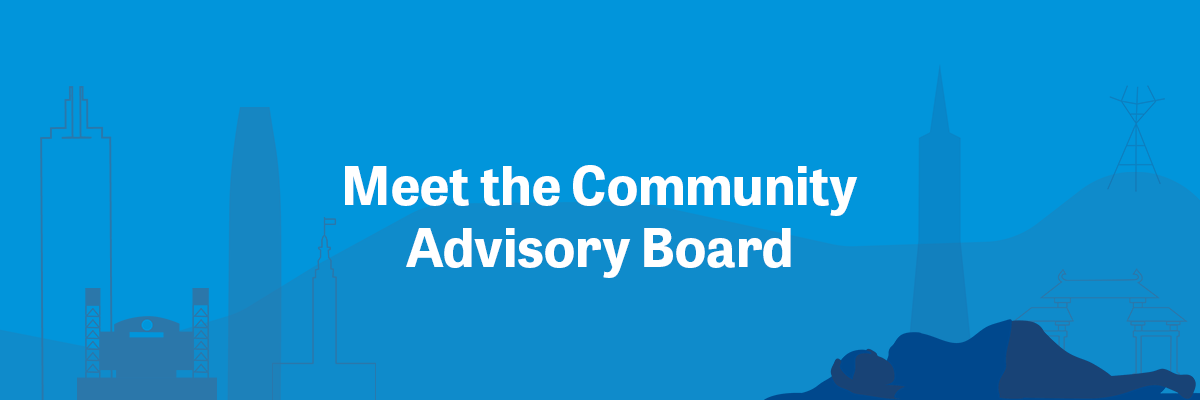Solutions to homelessness rely on experience, expertise, and leadership, which is why Tipping Point’s Chronic Homelessness Initiative (the parent organization of the All In Campaign) formed the Community Advisory Board. Each board member has lived experience with homelessness and contributes unique perspective, voice, and guidance.
In Their Own Words – Q&A with CAB Members





What do you bring to your position of leadership on the CAB?
“Truth, honesty, and my experience. The human kindness I have is still within me, and I lead by example.” (Couper Orona)
“I bring the perspective of low-income and working class people.” (Jesse James)
Why is lived experience important?
“I’m not a firefighter, so I would never go tell firefighters how to do their job because I’ve never fought a fire before. You don’t have to be homeless to help the homeless, but you do need more perspective on everything; a person with lived experience knows what matters and what doesn’t matter.” (Travis Chapman)
“There’s an activist saying, ‘Nothing about us without us.’ Lived experience gives the people who are facing an issue a stake in solving the issue.” (Timothy Johnston)
What do you love about San Francisco?
“I was born and raised here. This is where my roots are.” (Tracey Mixon)
“I love to hear all these different languages, I love feeling relatively safe from violence as a gay man and as a person of color. I love hopping on the 22-Mission and being surrounded by black-haired people. I love its history. I love the way we embrace the generosity and acceptance that Saint Francis promoted.” (Jesse James)
What’s something that would surprise people who have never experienced homelessness?
“The thing that would strike a person about homelessness when they haven’t experienced it themselves is how unhoused people are treated, like they’re ‘less than.’ From a legal standpoint, they are kind of diminished, because you don’t have an address or a permanent roof over your head. Another thing that would surprise someone who is not unhoused is that it’s not caused by a self-inflicted injury. Some people are quick to attribute a personal failure to someone who is homeless, but there are many triggers to this. A job loss, being hospitalized, or having a relationship end and you have to move out. There are plenty of things that are out of our control.” (Timothy Johnston)
If everyone understood ____________________, San Francisco would be a better city—for all of us.
“Have empathy for people. You could end up in the same position.” (Tracey Mixon)
“I know this dude … he’s a good guy. He survived 9/11 and Katrina. The only reason why he survived 9/11 was because he had a cup of coffee at home instead of his usual cup of coffee at work. And when he walked up to the Twin Towers, that’s when the planes crashed—and he was there. And that’s some extreme trauma. And people don’t care because they don’t see the trauma, they just see an older guy who looks like he’s addicted to drugs.” (Travis Chapman)
What gives you hope in terms of solutions to homelessness in San Francisco? What makes you resilient?
“A greater awareness of the issue among people, and having that sense of solidarity that people would want to stand together to make sure that nobody goes without a roof over their head.” (Timothy Johnston)
“One of the hardest times in my life was when I was homeless with my daughter. She is the reason I never gave up. I promised her a home, and I kept that promise.” (Tracey Mixon)
What are some of the changes you want to see in San Francisco?
“City leaders need to become part of the community. As it is, they seem so far away from knowing what’s happening in their communities … Knowing our city leaders have our back is important. We need to have people in there who care. Make people matter, that’s the most important thing.” (Couper Orona)
“I want to see safe, dignified housing for formerly homeless people. I want to make sure that they have the services that they need.” (Tracey Mixon)
Read more about the CAB in this blog post: What Mayra Sierra has Learned from the CAB Members.


